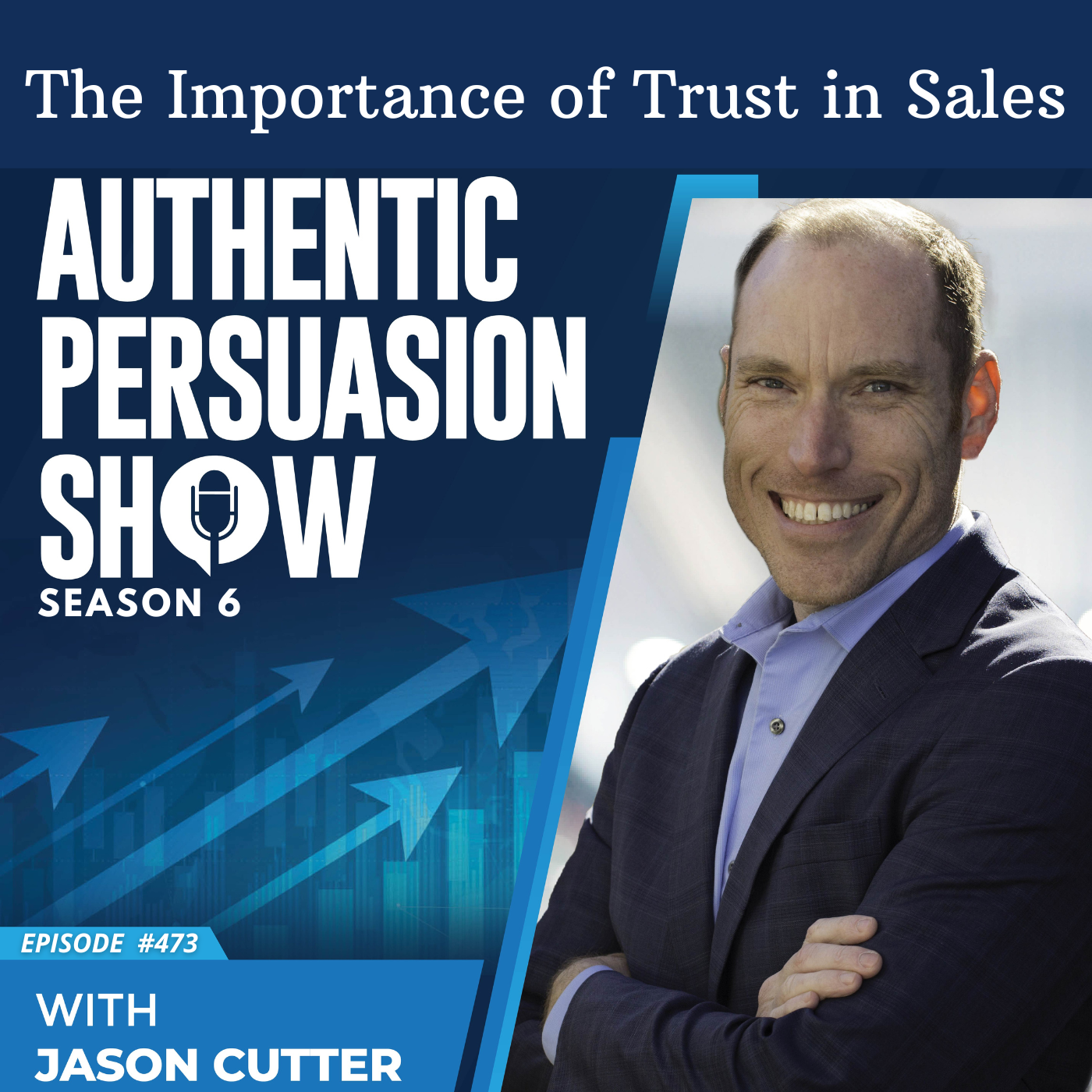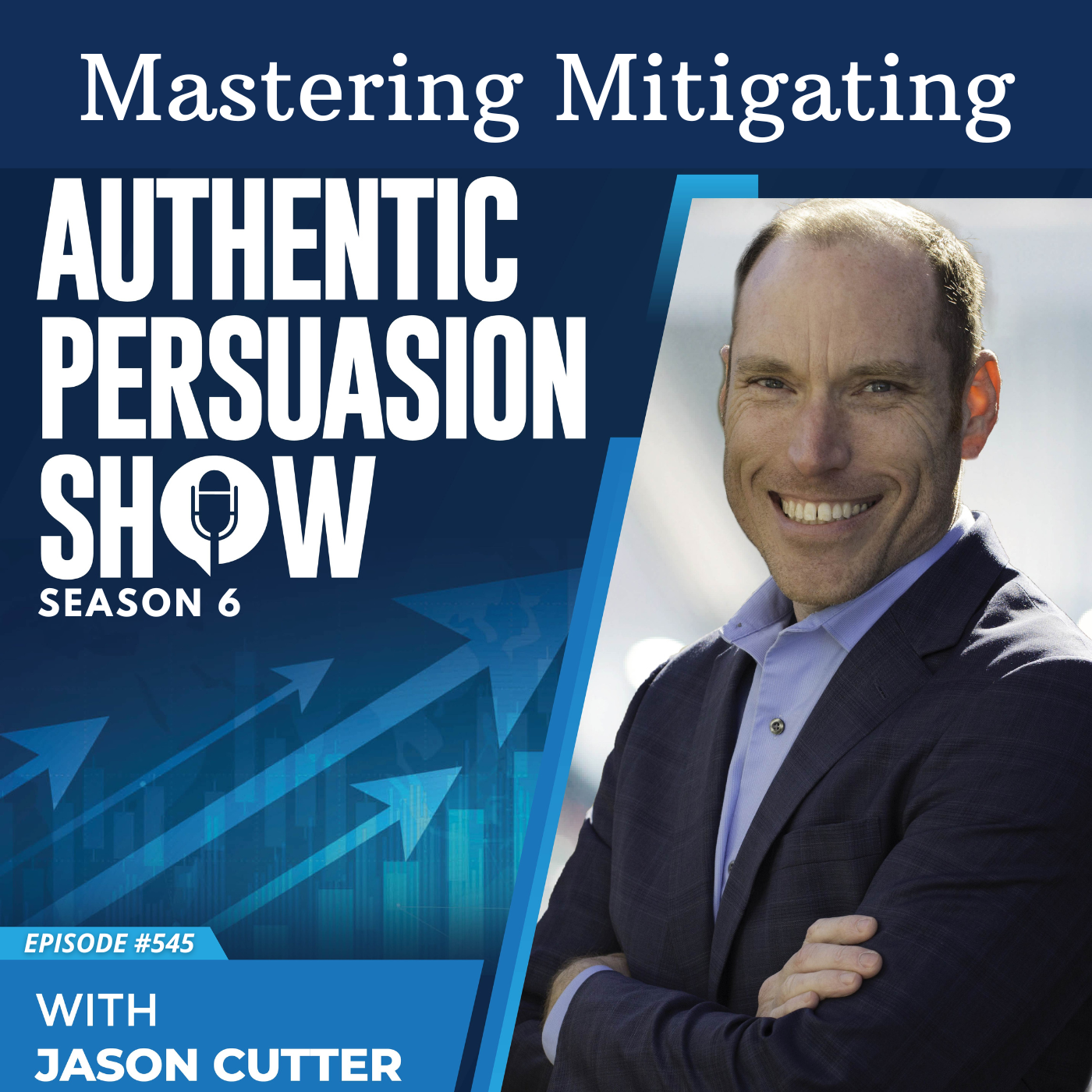Episode Transcript
[00:00:00] Welcome to the authentic Persuasion show. On this episode I want to replay part of a previous show. Maybe you heard the original full length episode and this could be a great refresher and reminder. Or maybe this is your first time hearing this content and the timing could be just right to help you leverage authentic persuasion today in your role, no matter what. Here's to your success.
[00:00:21] This is the authentic persuasion show.
[00:00:24] You it. And so that's the big thing. That's where I want to leave the empathy step, which is helping you understand that it is okay to care. It is important to care. The world needs you to care. And when you care about the best outcome for your prospects, it's not just about helping them and then you losing, right? It's not win lose where they're winning and you're losing. It's about helping them win. And then if you can do that with your product or service, with what your company sells or what you sell, then you're both going to win, right? And then it's beneficial to everybody. Or if you can't help them, right, they have a square peg problem and you have a round peg solution, then care about them. Help them find a better solution or send them on a different path. Know that you did the right thing and then move on. Right. Which then segues into the next part. And this is super important as a part of this formula that is really key if you want to be successful in sales as a professional long term, and you want to follow the authentic persuasion pathway and the framework, and you want to use empathy and you want to use the things that we're going to talk about in future sessions, which are other parts of the authentic persuasion pathway that are super powerful but usually done incorrectly by salespeople, especially order takers, is that you have to also understand the power and value of saying no.
[00:01:56] That honesty of telling people no is such an important aspect. Now here's what happens. A lot of people get into sales and they think that their job is to convince, manipulate, close, push, trick, talk into whatever that looks like, anybody and everybody that they have an opportunity to talk to. That gets magnified even more with organizations that a don't do enough training around mindset and sales process, sales strategies and what it means to be a sales professional. They don't do enough training, education, continuing education, coaching, mentoring. They just kind of throw people out there and hope they figure it out. Compounded even more when we get into the numbers game discussion, which if you've been in sales for any length of time, you know that you dial up a bunch of people or talk to a bunch of people and you hear a bunch of no's, then what happens is when you've got somebody, if you go through some of those streaks, you get somebody on the phone or into a meeting and you're talking to them and they're engaging with you enough. What happens is that scarcity side, that survival part of our brain that says I haven't closed enough deals or I haven't closed a deal in recent enough time, I need this deal. And then we switch into this mode, which then is why sales has a bad reputation, when the salesperson gets into their own self centered self interest mode and we can all feel that. We can all feel when the salesperson is just pushing to close a deal and you can tell that it's all about them and it's even worse when it's not even a good fit. Again, I am looking for a blue pickup truck and this person is only selling red sedan cars, right?
[00:03:50] It's not what I want. Stop trying to convince me that's what I want. Convince me that that would be better idea, that's not going to work. And that kind of like, again, square peg, round hole, that isn't effective. And again, some people might buy from that, some people might fall for it. Short term. Long term, they're going to cancel. They're going to return whatever they bought. It's not going to be effective long term, it's not a good strategy. And we've all experienced that. Again, we've all experienced a moment where we know that this isn't what we want to buy. We know it's not going to help us, it's not a good fit. And that salesperson just won't stop. They're not listening to you telling them no, that you're not interested. Not just not interested, but like, this is not what I want. And they just don't seem to get it. So the key is we don't want to do that. Obviously, as authentic persuaders. We want to be authentic. We want to persuade people. We want to persuade the right people to move forward and to buy from us or we want to send them off in a better direction. And that's where this comes into it. And the power of saying no. Again, a lot of people who are in sales, who fell into sales, who don't have enough training and leadership and guidance and coaching, they think that they have to move everybody forward. They have to push people forward, right? Like everyone saw in Glen Gary, Glenn Ross and then boiler room, like always be closing. This ABC is just this constant, and it's a mantra that people think that they need to do that sales equals closing. If I want to be successful, I have to always be closing. Now, there is some part of that that could be true, that could be valid, but unfortunately, it's usually not wielded in the right way. And most people don't understand how to use that mode. Always be closing and what that actually looks like as a professional. And so it's just put into the wrong hands and then it's dangerous and it leads to bad things for salespeople and for consumers.
![[721] The Importance of Saying No](https://episodes.castos.com/salesexperiencepodcast/images/1654396/c1a-4d8w-jkwpog4zu5mj-vhwynw.png)


